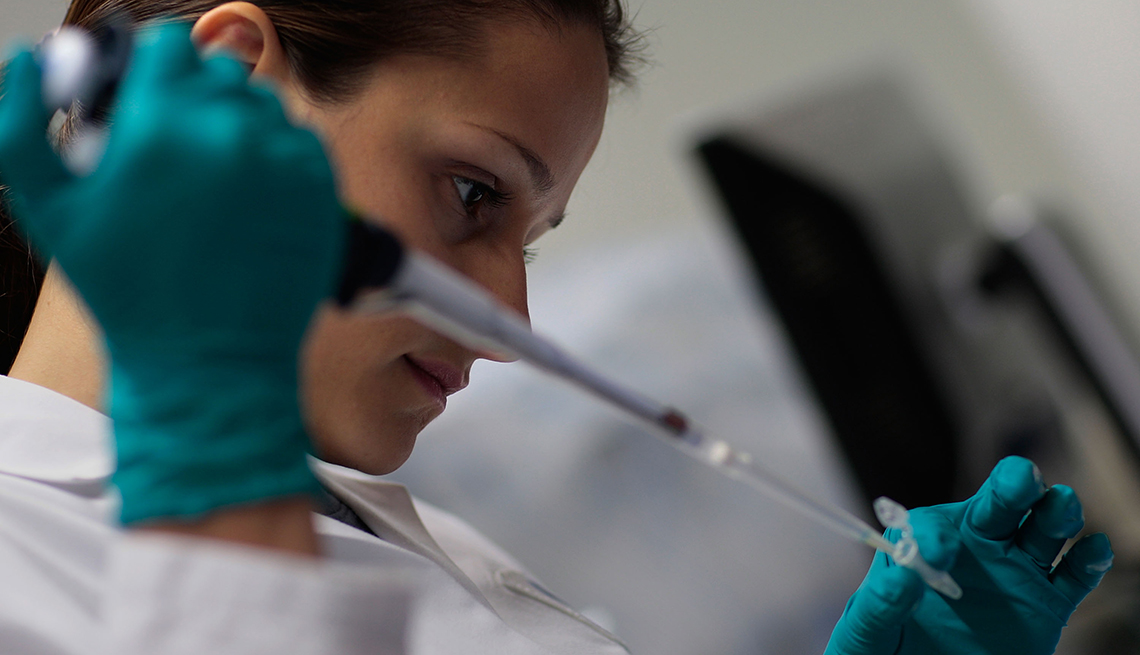Hiv vaccine shows promise after decades of research
- Select a language for the TTS:
- UK English Female
- UK English Male
- US English Female
- US English Male
- Australian Female
- Australian Male
- Language selected: (auto detect) - EN

Play all audios:

WHERE HIV VACCINE RESEARCH IS NOW Up until recently, the most promising line of research was investigating whether injecting healthy people with broadly neutralizing antibodies can protect
against HIV. Scientists mass-produced one antibody, known as the VRC01 antibody, discovered in the blood of a patient living with HIV. Initial research suggested that it might be up to 75
percent effective in preventing HIV transmission. But a 2021 study that followed more than 4,000 at-risk people for 20 months found that this antibody was able to block only about 30 percent
of the HIV strains circulating in a community. Nevertheless, “it gave us the green light to look at other ways of antibody development, such as mixing antibodies together to create a
cocktail that blocks HIV at different points,” says Stephaun Wallace, a staff scientist in the vaccine and infectious disease division at the Fred Hutch Cancer Center in Seattle and a
clinical assistant professor at the University of Washington. Despite all of these roadblocks, HIV vaccine research continues to move forward. Here’s a look at a few of the most promising
human clinical trials: HVTN 301. This study, run by the HIV Vaccine Trials Network at the Fred Hutch Cancer Center, uses a tiny protein, or immunogen, to see if it can generate broadly
neutralizing antibodies that protect against HIV. The hope is that the immunogen can stimulate the development of a certain type of immune system cell known as B cells, so that they can
create the antibodies themselves. HVTN 302. This study, funded by the National Institutes of Health, evaluates three experimental HIV vaccines based on the mRNA platform. Each vaccine,
created by drug company Moderna, contains a different spike protein found on the surface of the HIV virus that allows it to enter human cells. (None of these vaccines can actually cause HIV
infection.) “The amazing thing about the mRNA technology is that it allows your body to make much higher levels of protein, so that it can raise a vigorous immune response,” Gandhi says.
IAVI G002. This is a clinical trial sponsored by the International AIDS Vaccine Initiative, testing the safety and immune response of two mRNA vaccines on 56 healthy adults. Earlier research
found that one of the vaccines was able to stimulate the production of rare immune cells needed to create antibodies against the HIV virus in 97 percent of patient participants. In
addition, researchers are studying the use of some of these potential HIV vaccines as a means of treatment. “There is a big push now to cure HIV infection, since it’s hard for many people to
get on [antiretroviral] therapy and stay on it for decades and decades,” Deeks says. “The hope is that these vaccines can actually train a person’s immune system to take care of the virus
on its own. It would be amazing if some of these vaccines are able to be used not just as a prevention but also as a cure.” _Hallie Levine is a contributing writer and an award-winning
medical and health reporter. Her work has appeared in The New York Times, Consumer Reports, Real Simple, Health and Time, among other publications._ _Editor's Note: This article has
been updated to correct the trial sponsor of the IAVI G002 study._